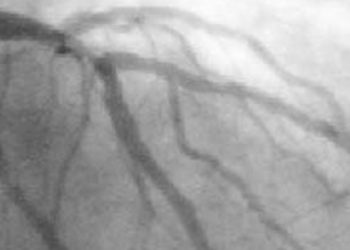Intravenous amino acids decrease acute kidney injury following cardiac surgery
1. In this randomized controlled trial, in patients undergoing cardiopulmonary bypass, continuous intravenous (IV) administration of amino acids was found to be associated with lower rates of acute kidney injury (AKI).
2. There was no significant difference in adverse outcomes in the IV amino acid group as compared to the placebo control group.
Evidence Rating Level: 1 (Excellent)
Study Rundown: AKI is a common complication of cardiac surgery, often resulting from reduced renal blood flow. While it is associated with long-term morbidity and kidney dysfunction, there is currently no standardized protocol to prevent the occurrence of AKI in cardiac surgery patients. Previous studies have shown that IV amino acid infusions protect renal function by increasing kidney perfusion and are safe for human use, improving survival in the critically ill. Therefore, this study aimed to evaluate the effectiveness of a continuous 72-hour IV infusion of amino acids in preventing post-operative AKI in patients undergoing cardiac surgery with cardiopulmonary bypass. The results indicated that patients receiving IV amino acids had a significantly lower occurrence of AKI as compared to those in the placebo group who received an IV crystalloid infusion. There were no significant differences between the groups in terms of AKI severity, the use of kidney replacement therapy, the duration of hospital and intensive care unit (ICU) stays, mechanical ventilation, adverse outcomes, or mortality. The study was limited because it relied on serum creatinine elevation for AKI diagnosis, lacked a standardized AKI prevention and management regimen, had mainly higher-income European patients, and did not contain objective data on tubular injury. Despite this, the findings suggest that IV amino acids prevent AKI in adult cardiopulmonary bypass patients.
Click to read the study in NEJM
In-Depth [randomized controlled trial]: This randomized controlled trial investigated the effect of a continuous 72-hour IV infusion of amino acids in patients undergoing cardiac surgery with cardiopulmonary bypass. Patients were included if they were at least 18 years old, had a scheduled elective cardiac surgery requiring cardiopulmonary bypass, and stayed in the ICU at least one night post-operation. Exclusion criteria were either pre-operative or scheduled kidney-replacement therapy or a diagnosis of chronic kidney disease at stage IV or higher. Following randomization, 1,759 patients received the IV amino acid treatment, and 1,752 patients received Ringer’s solution. This trial identified AKI as the Kidney Disease: Improving Global Outcomes (KDIGO) creatinine criteria for a stage 1 or greater AKI. The primary outcome was an AKI occurrence within the first post-operative week. Patients in the amino acid group had a significantly lower occurrence of AKI (26.9%) than those belonging to the placebo group (31.7%) (Relative Risk [RR], 0.85; 95% Confidence Interval [CI], 0.77-0.94; p=0.002). Of note, the amino acid group had a lower incidence of KDIGO stage 1 AKI (24.4%) as compared to the placebo group (28.1%) (RR, 0.87; 95% CI, 0.78-0.97). Similarly, the occurrence of stage 3 AKI in the amino acid group (1.6%) was also lower than in the placebo group (3.0%) (RR, 0.56; 95% CI, 0.35-0.87). There were no significant differences found between the groups in terms of median duration of kidney-replacement therapy (RR, 9.79; CI -62.13-81.70), mechanical ventilation (RR, -0.60; CI, -3.70-2.49), ICU stay (RR, 1.39; CI, -4.78-7.57), or nights spent in hospital (RR, 0.28; CI, -0.36-0.92). IV amino acid infusion was also safe, with no significant differences in mortality risk or adverse medical outcomes. These findings suggest that IV amino acid infusions may provide kidney protection for patients undergoing cardiac surgery with cardiopulmonary bypass.
Image: PD
©2024 2 Minute Medicine, Inc. All rights reserved. No works may be reproduced without expressed written consent from 2 Minute Medicine, Inc. Inquire about licensing here. No article should be construed as medical advice and is not intended as such by the authors or by 2 Minute Medicine, Inc.








